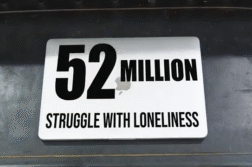ORLANDO, Fla. (Ivanhoe Newswire) — Recently, there has been a lot of positive research coming out about video games helping to improve kids’ impulse control and memory. But when they come head-to-head against a traditional game, do video games come out on top? Brain games
Video games have gotten a bad reputation for being linked to obesity and vision problems in youth with excessive use, but there are some positives. When used in medical applications, video games can train people with degenerative diseases to improve their balance and help adolescents with ADHD improve their thinking skills. But what about when it comes to memory?
Michelle L. Humeidan, MD, PhD, Anesthesiologist at The Ohio State University Wexner Medical Center says, “An active mind might be a protected mind. You’re exercising your brain, your neurons, your neuro function.”
A University of Vermont, Burlington study found kids who played video games for three hours a day or more performed better on cognitive skills tests involving working memory compared to kids who never played video games. But for older adults, researchers from Columbia University and Duke found that crossword puzzles actually have an advantage over video games when it comes to memory functioning. They found there was less brain shrinkage, which is associated with Alzheimer’s disease for those who worked crossword puzzles compared to those who played video games. David Albertson believes it. He does crossword puzzles every day.
David Albertson says, “I’ve been doing it for over 50 years, probably 60 years.”
Helping to solve the puzzle of memory loss.
The researchers found that crossword puzzles not only benefited those with early stages of cognitive decline, but also people with cognitive decline in later stages.
Contributors to this news report include: Milvionne Chery, Producer; Roque Correa, Editor.
Sources:
https://jamanetwork.com/journals/jamanetworkopen/fullarticle/2797596
https://www.health.harvard.edu/blog/the-health-effects-of-too-much-gaming-2020122221645
https://www.nih.gov/news-events/news-releases/video-gaming-may-be-associated-better-cognitive-performance-children, https://www.sciencedaily.com/releases/2022/10/221027093305.htm
WHICH BRAIN GAMES IMPROVE MEMORY: VIDEO OR CROSSWORDS? #3045
BACKGROUND: According to Merriam Webster, memory is “the power or process of reproducing or recalling what has been learned and retained especially through associative mechanisms.” But the word can also mean a commemorative remembrance, such as a monument. Another definition is “a particular act of recollection or recall” or “the image or impression of one that is remembered.” This is the definition of memory that we are using when we talk about good or bad memories of a past event, such as our childhood. Almost 40% of us will experience some form of memory loss after we turn 65 years old. But even if we experience memory loss, chances are still unlikely that we have dementia. For the most part, our memory loss is mild enough that we can still live our day-to-day lives without interruption.
https://alzheimer.ca/en/about-dementia/do-i-have-dementia/differences-between-normal-aging-dementia)
DIAGNOSIS: Memory loss that disrupts your life is one of the first or more-recognizable signs of dementia. Other early signs might include: taking longer to complete familiar tasks, misplacing items in inappropriate places, such as putting a wallet in a kitchen appliance, getting lost while walking or driving in a familiar area, and/or having changes in mood or behavior for no apparent reason. To diagnose memory loss, your doctor is likely to ask you questions. It’s good to have a family member or friend along to answer some questions based on observations. Questions might include: when did your memory problems begin or what tasks do you find difficult? In addition to a general physical exam, your doctor will likely conduct question-and-answer tests to judge your memory and other thinking skills. He or she may also order blood tests, brain-imaging scans and other tests that can help identify reversible causes of memory problems and dementia-like symptoms.
NEW REGULATIONS: Brain games improve your cognitive performance in memory, problem-solving, and logical reasoning. These improvements keep your mind sharp and stimulated. Chess is visual stimuli that exercise memory and concentration in children and adults. It teaches you planning, decision-making, and creativity to anticipate your opponent’s moves and win the game. Various studies on the impact of chess among school-going children showed that they had better memory, creativity, attention span, verbal reasoning, and organization skills. Crossword puzzles improve your cognition within the linguistic area. Crosswords create a mental challenge because you have to concentrate on writing the words correctly in the white boxes. Repeated practice builds your vocabulary retention and concentration.
(Source: https://irisreading.com/what-games-help-improve-memory/)
* For More Information, Contact:
Amy Colgan, PR
Free weekly e-mail on Medical Breakthroughs from Ivanhoe. To sign up: http://www.ivanhoe.com/ftk



